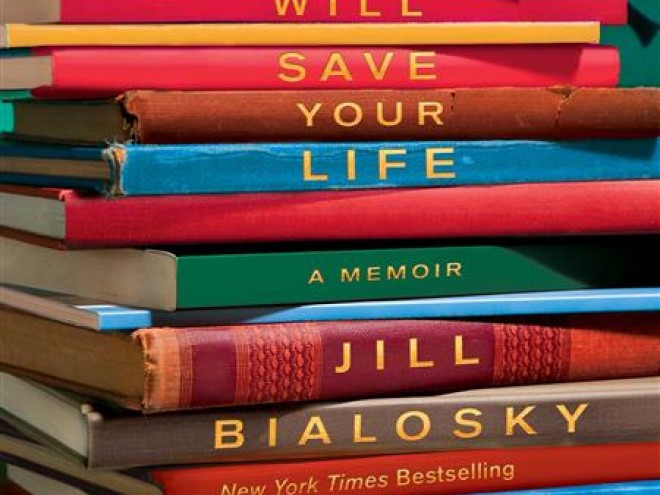Internal Dialogue is a Jewish Book Council blog series on literary trends, ideas, and discussions of interest to Jewish readers and community organizers, curated by the Jewish Book Council editors and staff. Posted by Nat Bernstein.
Jewish Book Council kicked off its third season of Unpacking the Book: Jewish Writers in Conversation this week with a discussion between Daniel Gordis and Nir Baram, two of Israel’s most celebrated contemporary writers.
Presented in partnership with The Paul E. Singer Foundation and moderated by Bari Weiss of The Wall Street Journal, Israel: A Tale of Love & Darkness? opened an engaging and provocative discussion of the current political and social realities of the Middle East today, prompted by Daniel Gordis’s recent publication Israel: A Concise History of a Nation Reborn, recipient of the 2016 Everett Family Foundation Award for Jewish Book of the Year, and Nir Baram’s forthcoming report A Land Without Borders: My Journey Around East Jerusalem and the West Bank.
Following the audience Q&A at the end of the live discussion, series moderator Bari Weiss asked both authors to name three books they would each recommend to American readers looking to gain a nuanced, deeper understanding of the region’s history, future, and contending narratives.
Nir Baram immediately named the short stories of A. B. Yehoshua, specifically the works collected in The Continuing Silence of a Poet. Though Yehoshua’s novels are better known among international audiences, Baram insists the Israeli Faulkner’s short fiction is unquestionably some of the best writing to ever come out of Israel — indeed, he claims, it is probably some of the best writing from anywhere, ever.
Baram also recommended Benny Morris’s The Birth of the Palestinian Refugee Problem, 1947 – 1949as a crucial primer on the history of the region. While world leaders and the older generations of activists discuss and negotiate resolutions based on the 1967 borders, Baram points to their Palestinian counterparts and the emerging grassroots-initiated movement of younger Israeli Jews shifting the focus to back to 1948.
Daniel Gordis asserted that the Amos Oz autobiography that inspired the title of Tuesday evening’s event perhaps best represents the Israeli narrative, both in terms of form — Oz’s writing remains unsurpassedly beautiful across genres — and its encapsulation of the Zionist historical experience of the twentieth century. A Tale of Love and Darkness presents “a loving look at the country without failing to point out the problematic.”
Gordis also recommended Eshkol Nevo’s Neuland, a fictional response to Theodor Herzl’s Altneuland imagining a movement to create an entirely new Jewish state among young, post-army Israelis traveling abroad. The story raises searing questions about the Zionist ideal and its evolving identity in the modern world.
Both authors agreed that David Grossman’s work is seminal to the literary expression of Israel — Gordis highlighted To the End of the Land, a novel in which a woman runs away from home to prevent the possibility of the Israel Defense Forces finding her to report the death of her son (thereby ensuring that he “can’t” ever die): “a beautiful look into the struggles and scars of the country.” He also mentioned S. Yizhar’s Khirbet Khizeh—a novella critiquing Israel’s capture of an Arab village in 1948, examined in A Land Without Borders—and the author’s curious rise to prominence at the time of the book’s publication in 1949: the book became an immediate bestseller in Israel, and Yizhar was swiftly elected to the Knesset and appointed Minister of Education, indicating that “Israel does not run away from self-critique — or at least didn’t use to.”
Of course, books don’t have to be about a place, moment, or conflict to convey the experience and tensions of the people living in them. Baram encouraged the audience to delve into contemporary Israeli writers across genres and explore works that purportedly concern the universality of the human condition. Young writers like D. A. Mishani, Asaff Gavron, Lea Aini, Etgar Keret, Sayed Kashua, are deftly expressing the Israeli narrative in the subtext of their prose, which reaches outward but never fully departs from the socio-political environment that bore them. And if you’re looking to follow his advice, Jewish Book Council’s editorial team assembled a reading list to start you off…
A video recording of the full program will be posted online next week for readers who were unable to attend the live program, and discussion questions for the featured titles are available for free download here if your book club is interested in reading these or other books on the Israeli-Palestinian conflict.
Unpacking the Book: Jewish Writers in Conversation continues next month with Good Girls, Nasty Women: Gender and American Jewish History on March 28, 2017 at The Jewish Museum. Sign up for free admission »
Good Girls, Nasty Women: Gender and American Jewish History
Tuesday, March 28, 2017 | The Jewish Museum, New York City
Disappointed Amazon’s Good Girls Revolt was cancelled after the first season? Hear from award-winning journalist Lynn Povich, the author of the memoir upon which the show was based, in conversation with Ernestine Rose biographer and women’s historian Bonnie S. Anderson and Rebecca Traister, journalist and author of All the Single Ladies: Unmarried Women and the Rise of an Independent Nation. Discover the Jewish women behind history’s great revolutions and contemporary movements, from the activists of America’s Antebellum to the women’s liberation stirrings of the midcentury — to today’s “nasty” women — at Unpacking the Book: Jewish Writers in Conversation Tuesday, March 28, 2017 in New York City!
Related Content:
- A Reading List of Israel Classics
- Nava Semel: Playing with History Like a Deck of Cards
- Contemporary Israeli Literature: A Fiction Reading List
Nat Bernstein is the former Manager of Digital Content & Media, JBC Network Coordinator, and Contributing Editor at the Jewish Book Council and a graduate of Hampshire College.












